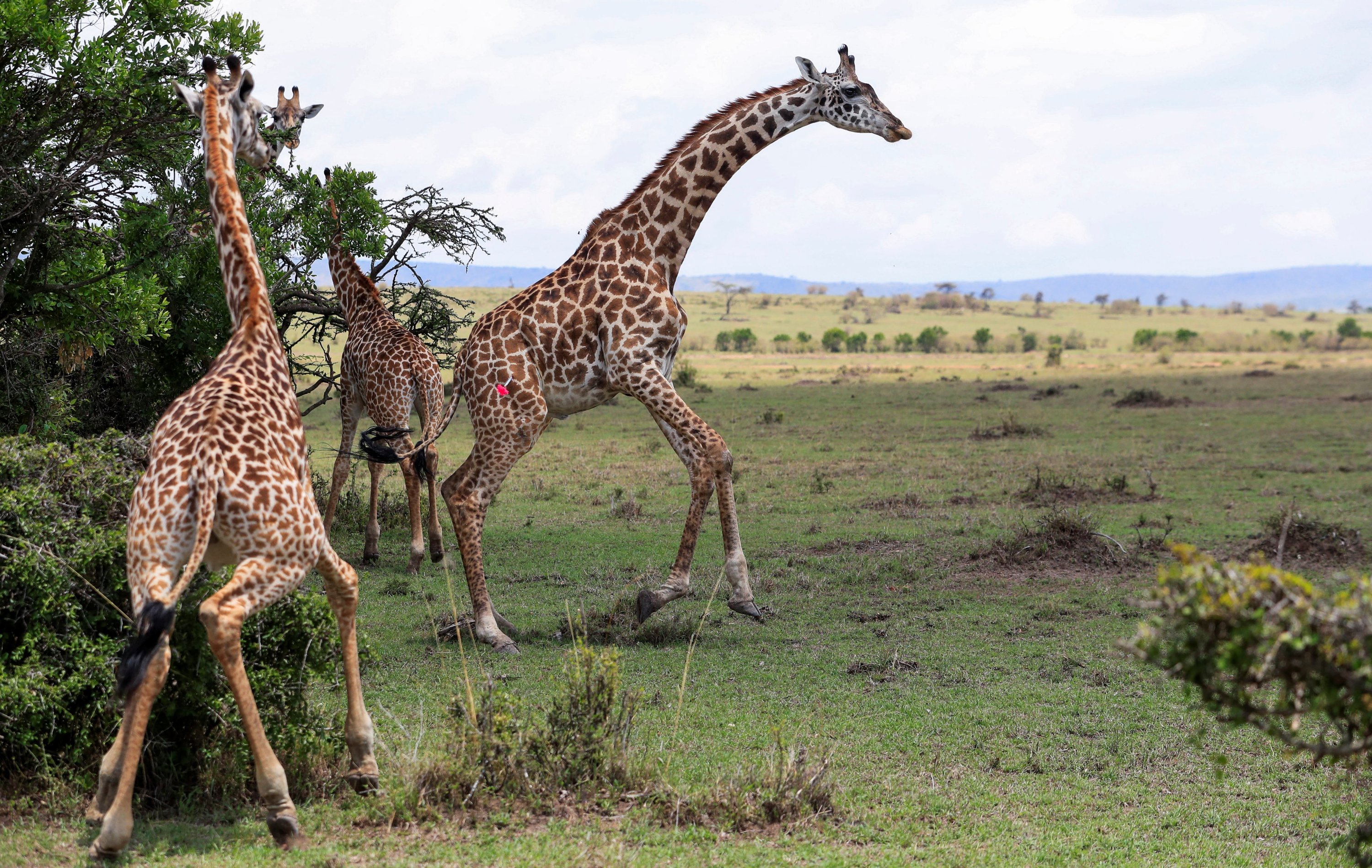© Turkuvaz Haberleşme ve Yayıncılık 2026
In the heart of the Maasai Mara, amid the resounding roars of African wilderness and the ancient rhythms of nature, a hidden world thrives.
It is a world guarded by "unsung heroes,” where humans and animals meet at a crossroads of survival in one of Africa’s largest wildlife reserves in southwestern Kenya.
The elephant corridor in Maasai Mara runs between Kenya and Tanzania, one of the busiest for the magnificent creatures in this reserve and the wider African region.
Throughout the year, herds of elephants move along the pathway in search of food, water and safety.
During dry seasons, when water and food become scarce in certain areas, the corridor becomes especially crowded as herds embark on long journeys in search of sustenance.
But this path is as treacherous as it is majestic, fraught with perils ranging from the threat of poachers to the challenges of human-wildlife conflicts.
That is where the Maasai Mara’s rangers come in, keeping an eye out for whatever danger may lie in store.
Before the first light of day breaks over the Maasai Mara, the rangers are already in motion, setting things up for the day and ensuring their gear is in top condition.
Their boots, caked in mud and worn-out by countless hours of patrolling, are a testament to their dedication.
Rifles slung over their shoulders, they assemble for a team talk of sorts, before climbing onto their 4x4s and heading out for the day.
"This is not just a job, it’s a calling,” Sarah Nakuru, a ranger, told Anadolu Agency (AA) as she gave her gear one final check.
"Every day, I wake up knowing that I’m the last defense for these animals. It’s a big responsibility, but it’s also the most rewarding thing I’ve ever done.”
Ranger David Kimani, with years of experience under his belt, added, "We’re not just protecting animals, we’re protecting our heritage. The Maasai Mara is part of who we are, and we can’t let it vanish on our watch.”
Poachers target elephants for their ivory, posing a constant threat to the magnificent creatures. In this battle, the rangers have a secret weapon: Technology.
In partnership with conservation organizations, they use cutting-edge tools like drones and satellite tracking to monitor and protect wildlife.
"Technology has become our ally. It helps us detect poachers from a distance, and satellite tracking allows us to keep tabs on the movements of elephants. It’s a game-changer,” said James Omondi, a ranger.

Azzedine Downes, head of the International Fund for Animal Welfare (IFAW), recognizes the rangers’ critical role and just how underappreciated they have been over the years.
"The rangers of the Maasai Mara are the unsung heroes of conservation. Their importance cannot be overstated. They are the front line defenders of African elephants, and their dedication is awe-inspiring,” Downes told AA.
"These brave individuals put their lives on the line daily to protect one of Africa’s most vital wildlife wonders. It is crucial that we acknowledge their significance and provide them with the support they need to continue their vital work. The future of African elephants and the entire ecosystem of the Maasai Mara depends on it.”
Another key task the rangers perform is ensuring peaceful coexistence between local communities and wildlife, he added.
"The rangers work closely with local communities to foster understanding and cooperation. By engaging communities in conservation efforts, they not only deter poaching but also provide alternative livelihoods, reducing the incentive to harm wildlife,” he added.
Just beyond the entrance gates of Nairobi National Park, a solemn memorial plaque stands as a testament to the heroism of the rangers.
Carved into its surface are the names of valiant men and women who made the ultimate sacrifice while defending Kenya’s precious wildlife.
Over the past three decades, Kenya has mourned the loss of over 70 dedicated rangers, their lives taken in the relentless battle against poachers.
Yet despite the tragic losses, there is a glimmer of hope on the horizon.
Wildlife populations in Kenya’s national parks and reserves, including the Maasai Mara, are experiencing a remarkable resurgence.
The rangers have recently received upgraded bases courtesy of nongovernmental organizations (NGOs), a development expected to significantly bolster conservation efforts in the poaching-prone northwestern section of the park.
"These men and women can spend weeks away from their homes, so ensuring they are comfortably housed and supported to do their jobs is an investment in the rangers themselves,” said Downes.
"Investing in the rangers’ capacitates enables them to protect precious wildlife and the communities who live alongside wildlife.”
Today, it is largely because of these rangers that majestic animals roam freely in the Maasai Mara, unburdened by the threat of poison-tipped arrows that once posed a grave danger to their existence just decades ago.
